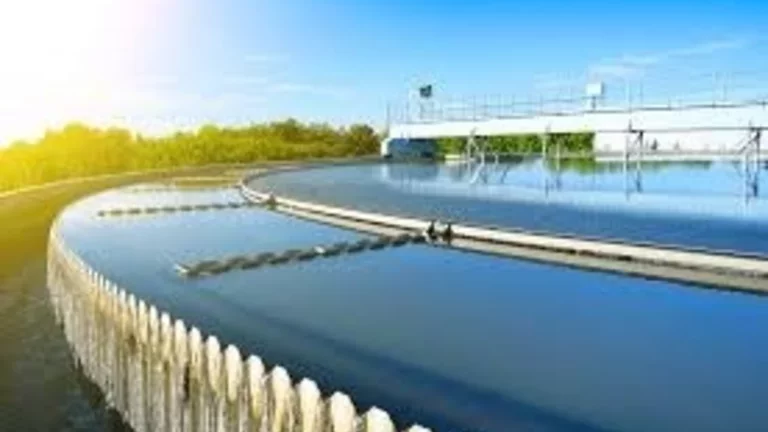Essential Guide to Water Treatment: Techniques and Benefits for Clean Water

The increasing demand and pollution have made water treatment essential to ensure clean and safe water for all purposes where Water is a vital resource that sustains life and drives industries worldwide.
Water treatment plays a pivotal role in addressing global water challenges, safeguarding public health, and supporting industrial processes. This blog delves into the fundamentals of water treatment, explores cutting-edge technologies, and highlights its critical role in industrial applications.
The Basics of Water Treatment
What is Water Treatment?
Water treatment refers to the process of improving water quality to make it suitable for a specific purpose, whether for drinking, industrial applications, or environmental conservation. The goal is to remove impurities, contaminants, and pollutants from water, ensuring it meets safety and quality standards.
With the growing population and rapid industrialization, the demand for clean water has surged. Untreated water can carry harmful pathogens, toxins, and pollutants, leading to severe health issues and environmental degradation.
Effective water treatment technologies ensure safe consumption, prevents diseases, and promotes sustainable water use.
Types of Water Treatment
Water treatment encompasses a variety of processes tailored to the specific requirements of water usage.
Physical Treatment:
- Techniques like filtration and sedimentation are used to remove solid impurities.
- Examples: Sand filtration and screening systems.
Chemical Treatment:
- Chemicals such as chlorine and ozone are added to kill bacteria and neutralize harmful substances.
- Examples: coagulation and flocculation.
Biological Treatment:
- Utilizes microorganisms to break down organic matter in wastewater.
- Examples: Aerobic digestion and activated sludge processes.
Cutting-Edge Innovations in Water Treatment Technologies
Technological advancements have revolutionized how water is treated, offering efficient and sustainable solutions:
Reverse Osmosis and Desalination:
- Removes salt and impurities from seawater to make it potable.
- Key for arid regions facing freshwater scarcity.
Membrane Filtration:
- Utilizes semi-permeable membranes to filter out contaminants.
- Widely used in both drinking and industrial water treatment.
Advanced Oxidation Processes (AOPs):
- Combines chemical oxidants and UV light to break down complex pollutants.
- Effective for treating industrial effluents and hazardous wastes.
These water treatment technologies not only improve water quality but also enhance energy efficiency and cost-effectiveness. Smart sensors and AI-driven systems are further optimizing operations, enabling real-time monitoring and predictive maintenance.
Industrial Water Treatment Solutions
Industries consume significant amounts of water for various processes, generating wastewater that must be treated before discharge. Industrial water treatment ensures compliance with environmental regulations while minimizing resource wastage.
Key Applications:
Cooling Water Treatment:
- Prevents scale, corrosion, and microbial growth in cooling systems.
- Essential for power plants and manufacturing facilities.
Boiler Water Treatment:
- Ensures steam generation systems operate efficiently by removing impurities.
- Reduces energy consumption and equipment downtime.
Effluent Treatment Plants (ETPs):
- Treats industrial wastewater to remove contaminants before disposal or reuse.
- Plays a critical role in reducing pollution and conserving water.
Air Liquide: Pioneers in Sustainable Water Treatment
Air Liquide offers comprehensive solutions for water and wastewater treatment, combining advanced technologies with expert support. Their products, such as oxygen and carbon dioxide, address essential needs like biochemical oxygen demand (BOD) management, pH reduction, and odor control.
Through innovative systems like Nexelia™ for Water Treatment, Air Liquide ensures efficient and sustainable water resource management, minimizing costs and complexity while delivering measurable results. Their commitment to environmental responsibility and operational excellence makes them a trusted partner in water treatment solutions.
How Water Treatment is Essential for the Environment and Economy
Environmental Advantages
Water treatment plays a crucial role in reducing pollution, helping to protect aquatic ecosystems from harmful contaminants. By ensuring that industrial and municipal wastewater is treated before it is discharged, water treatment minimizes the adverse effects on rivers, lakes, and oceans.
Modern water treatment systems enable water reuse, conserving this vital resource for future generations. Recycled water can be used for irrigation, industrial processes, and even potable purposes, reducing the strain on freshwater supplies.
Economic Impact
Effective water treatment is not just beneficial for the environment; it also makes sound economic sense. By optimizing water use and reducing waste, industries can significantly lower operational costs.
Proper treatment processes also help businesses comply with environmental regulations, avoiding hefty fines and penalties. This compliance not only safeguards companies' finances but also enhances their reputation as responsible and sustainable entities.
Challenges and the Future of Water Treatment
Current Challenges
Despite its importance, water treatment faces obstacles such as:
- High operational costs.
- Energy-intensive processes.
- Safe disposal of treatment byproducts like sludge.
Future Trends
The future of water treatment lies in smart and sustainable solutions:
- AI-Driven Systems: Enhance process control and efficiency.
- Green Technologies: Focus on renewable energy-powered systems.
- Nanotechnology: Offers innovative filtration methods for cleaner water.
Water treatment is indispensable for securing a sustainable future. Whether addressing public health, supporting industrial growth, or preserving the environment, investing in advanced water treatment technologies is essential. Industries and governments must collaborate to adopt innovative solutions, ensuring efficient and effective water management for generations to come.